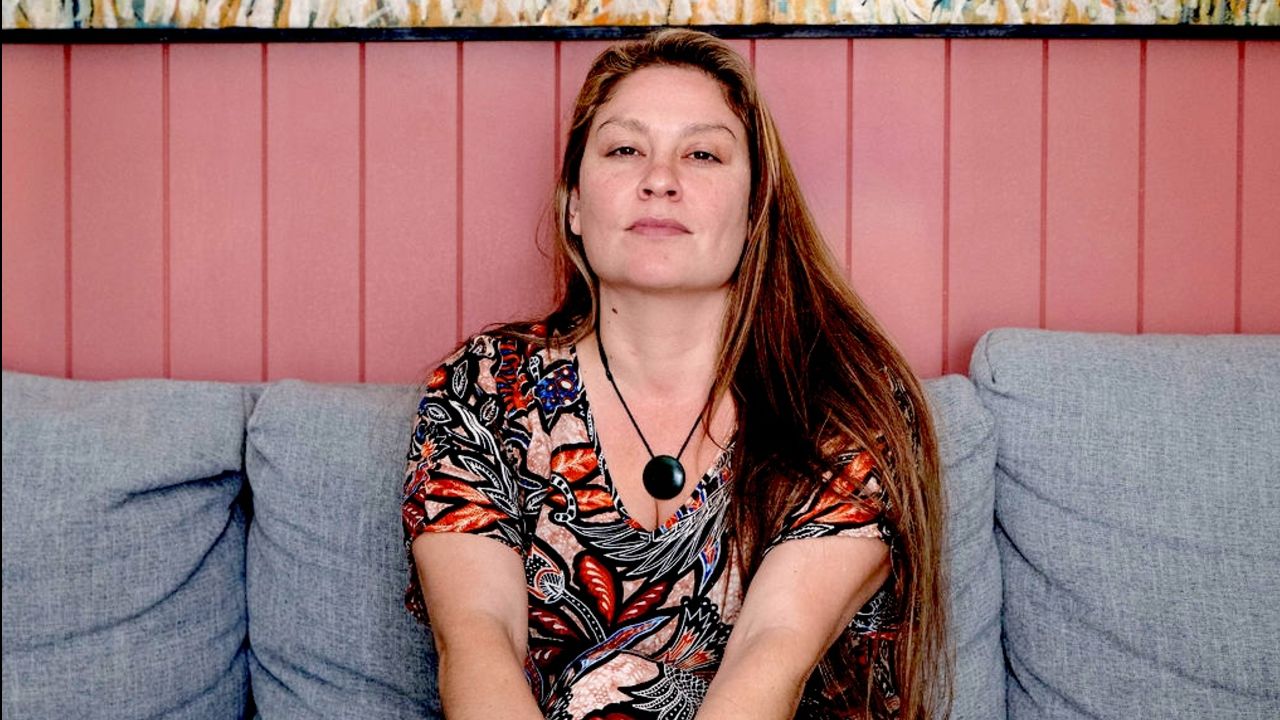Chantelle Murray is a proud Bardi and Bunial woman based in Queensland. She began her career as a performer but found her true calling behind the camera as a writer and director, focusing on screen stories grounded in Aboriginal history. Her storytelling is celebrated for its cultural depth, creative strength and unwavering commitment to authentic representation.

Chantelle’s debut short film My Name Is Mudju (2019), supported by Screen Queensland, received international recognition, screening at Atlanta’s BronzeLens Film Festival and winning Best Short Film at New Zealand’s Rotorua Indigenous Film Festival. The film also played at leading Australian festivals including Melbourne International Film Festival, CinefestOZ and Flickerfest.
Her earlier work Shed (also 2019), backed by Screen Queensland, Screen Australia and ABC, premiered at the Sydney Film Festival and was showcased at WINDA and CinefestOZ, both platforms championing Indigenous voices in cinema.
Beyond her directing work, Chantelle has contributed to international productions such as Baz Luhrmann’s Elvis, Gone Baby Gone, Bloody Hell, Tidelands and most recently Thor: Love and Thunder, where she was a Director’s Attachment with Taika Waititi.
Chantelle recently made history with the 2025 release The Lost Tiger, the first Australian animated feature film written and directed by an Indigenous woman. The film follows Teo, a young tiger raised by kangaroo wrestlers, on a quest to uncover his heritage and save his homeland.

Produced by Queensland’s Like a Photon Creative, The Lost Tiger featured the voices of First Nations talent including Jimi Bani (Black Snow), Nakkiah Lui (Black Comedy) and Thomas Weatherall (Heartbreak High), as well as Celeste Barber (Wellmania) and Rhys Darby (Our Flag Means Death).
Through her bold storytelling and leadership, Chantelle continues to pave the way for future generations of First Nations practitioners and women in film.
Screen Queensland caught up with Chantelle to discuss her creative journey and her vision for the future of First Nations storytelling.
What inspired you to be a screen practitioner and how did your career path evolve (any mentors in particular)?
Watching movies on the deck chairs at the old Sun Pictures cinema in Broome really blew my mind, highlighting that there’s more than one channel in the world. When I got the chance to audition for Rabbit Proof Fence, I realised there was a real pathway into the industry. So I contacted Phillip Noyce when I was older, and he gave me a chance to watch the legend himself work. As directors, we don’t really get to watch each other working, so it’s often a lonely path.
What makes Queensland a special place for First Nations storytelling on screen?
Queensland’s diversity and strength in storytelling is unmatched. The pathways and support, particularly from Screen Queensland, I feel is the best in the country. You’re so nurtured and supported through your journey and I’m so grateful to have that opportunity to hopefully pass it on to the next generation coming through.
What did making The Lost Tiger mean to you, and what do you hope audiences around the world get to experience with the film?
The Lost Tiger meant the world to me. Representation is everything and it means a lot to me having that First Nations presence in the animation feature world. Also, just something for my kids to watch in such a saturated environment, where they might be able to see themselves. I want the audience to just have fun, go on an adventure and maybe find a lil place of belonging.
What kinds of projects are you most passionate about exploring now?
I love epic stories, and naturally incorporating culture, to plant seeds. My protest is through a love and sharing of Culture, to walk the path together to preserve our ancient ways as Custodians.
What advice do you wish someone had given you when you were starting out and what would you share with emerging First Nations creatives today?
I think you learn what you learn as you need to. I choose to continue to learn as I’ll always be a student. My advice would be to trust your gut and don’t be afraid to speak up.
What upcoming projects are you most excited about right now?
I’m not sure if I’m allowed to speak about it yet! I’m always excited for more First Nations work as we’ve only been allowed to tell our stories for a short time. I’m excited for more of us to be completely in charge of our stories, rather than to be a box tick or as an add on. Times are changing though and it’s beautiful to be a part of it.
—
The Lost Tiger was supported by Screen Queensland’s Screen Finance Fund and is currently available to buy or rent from Apple TV and Prime Video. Screen Queensland released the organisation’s commitment to elevating Aboriginal and Torres Strait Islander voices, Beyond the Screen—Screen Queensland’s First Nations Strategy, in October 2024.

